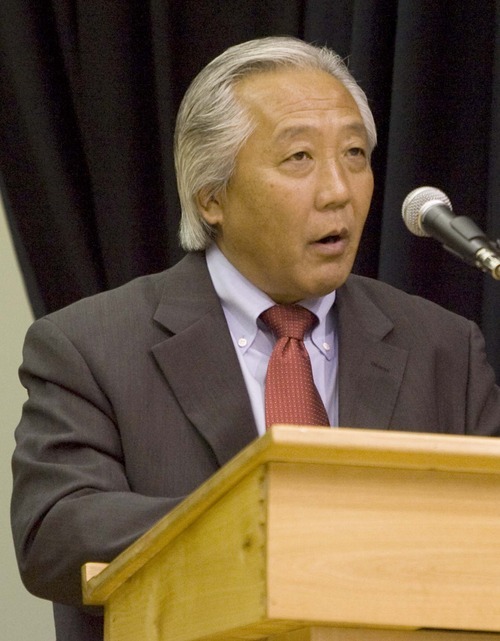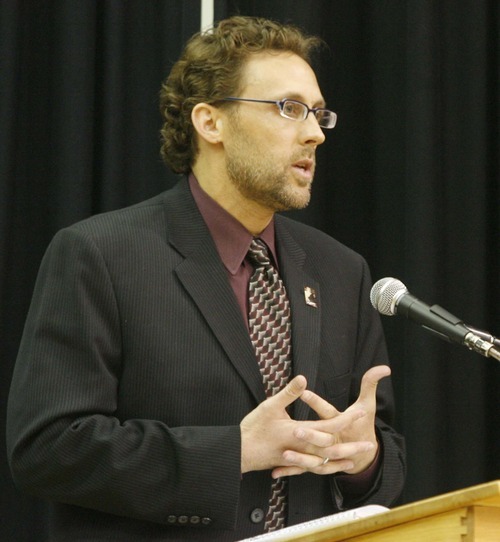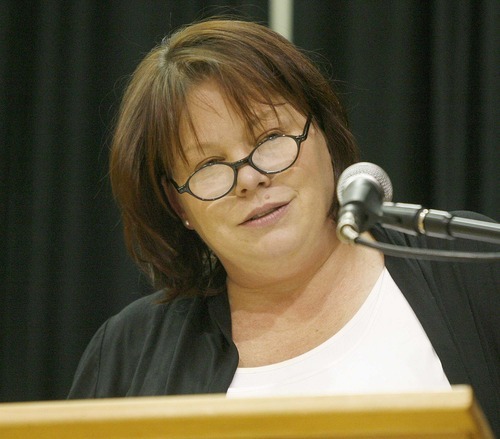This is an archived article that was published on sltrib.com in 2010, and information in the article may be outdated. It is provided only for personal research purposes and may not be reprinted.
Backers of a bid to end affirmative action said Monday that race-based preferences in college admissions and hiring are creating racial resentment and animosity and hampering efforts to build a color-blind society.
"We've plateaued in our efforts. Further progress to end or slow discrimination has virtually ended," said Rep. Curt Oda, R-Clearfield. "We are no longer making any difference with the programs enacted in the last 46 years."
The solution, Oda said, is to end race-based preferences by amending Utah's Constitution to prohibit the state from giving any race- or gender-based preference in education, employment and awarding state contracts.
Last legislative session, Oda's amendment fell just a vote or two short of being put on the ballot for voter approval. It is expected to be back this year, with Sen. Margaret Dayton, R-Orem, as the sponsor.
The American Civil Rights Institute, founded by Ward Connerly, has backed similar amendments passed in five states, including Arizona, where earlier this month voters approved an amendment banning affirmative action.
"It's not the purpose of government to remedy every disparity that might be found in American life," Connerly told a skeptical, predominantly black audience at the Calvary Baptist Church. "It's the responsibility of government to treat me as an equal."
The debate on whether Utah should ban affirmative action was sponsored by the state's Black Advisory Council.
Attorney Mary Deiss Brown called the proposal "deceptively simple," but she challenged the proponents to show who has been disadvantaged by existing policies and why the change is needed.
"I don't know of any instance where a white man can say he's been disadvantaged," she said. "I don't know why we're talking about this and I actually think it's destructive."
House Minority Leader David Litvack, D-Salt Lake City, called preferential treatment in Utah "a myth."
State hiring policies and admission policies at the state's public colleges and universities prohibit decisions based on any criteria other than an applicant's abilities.
"Preferential treatment does not exist in the state of Utah, so if we're here to stop preferential treatment we can go home, because it's already been stopped. It doesn't exist," Litvack said.
It was unclear what programs might be affected by the ban. Pressed by audience members for specific examples of changes that would need to be made, Oda said he didn't know.
Supporters of the amendment point to an audit of University of Utah medical school admissions in 2002 that found women and minorities were accepted at higher rates than white, male students.
They cite a legislative committee hearing last year, where public education officials told lawmakers they were falling short of their targets for the hiring of minority teachers.
And Oda said, anecdotally, he knows of two white applicants to the U. law school who were denied admissions in favor of less-qualified minority applicants.
Litvack said one example of a program that might be done away with is a community nursing program in Glendale, operated by the University of Utah and targeting the racially and ethnically diverse neighborhood.
Connerly argued that since 1965, affirmative action's race-based preferences have damaged the cause of equality, and said in today's America, all races compete on a level playing field.
Dierdre Yazzie, a 17-year-old American Indian student, said she was astounded by claims that she has exactly the same opportunities as others.
"We're way underrepresented," she said. "How am I supposed to compete with someone who has had three or four generations going to college?"
Connerly said it's not the government's job to fix historic injustice.
"The reality is we do not try to compensate in our public policy for things that were done 400 years ago," he said. "The rationale for using race is diversity, not to compensate for the sins of history."
Connerly said he is not against policies that address ongoing disparities in income, educational opportunities or other factors, but they should not be race based.
Curtis Linton, vice president of the School Improvement Network, said his company has been growing rapidly and he engages in affirmative action, hiring workers that look like the clients they serve. It's a common practice in the business world, he said, and everyone benefits from it. The state could benefit, he said, from taking a page from the business world. —
What's next?
While another attempt to amend the Constitution is expected, proponents have not released language of a bill they would run in the upcoming session. The Constitutional Review Commission is studying the potential impacts of any affirmative action ban. If two-thirds of both the House and the Senate approve the proposed amendment, it would go before voters on the 2012 ballot.







